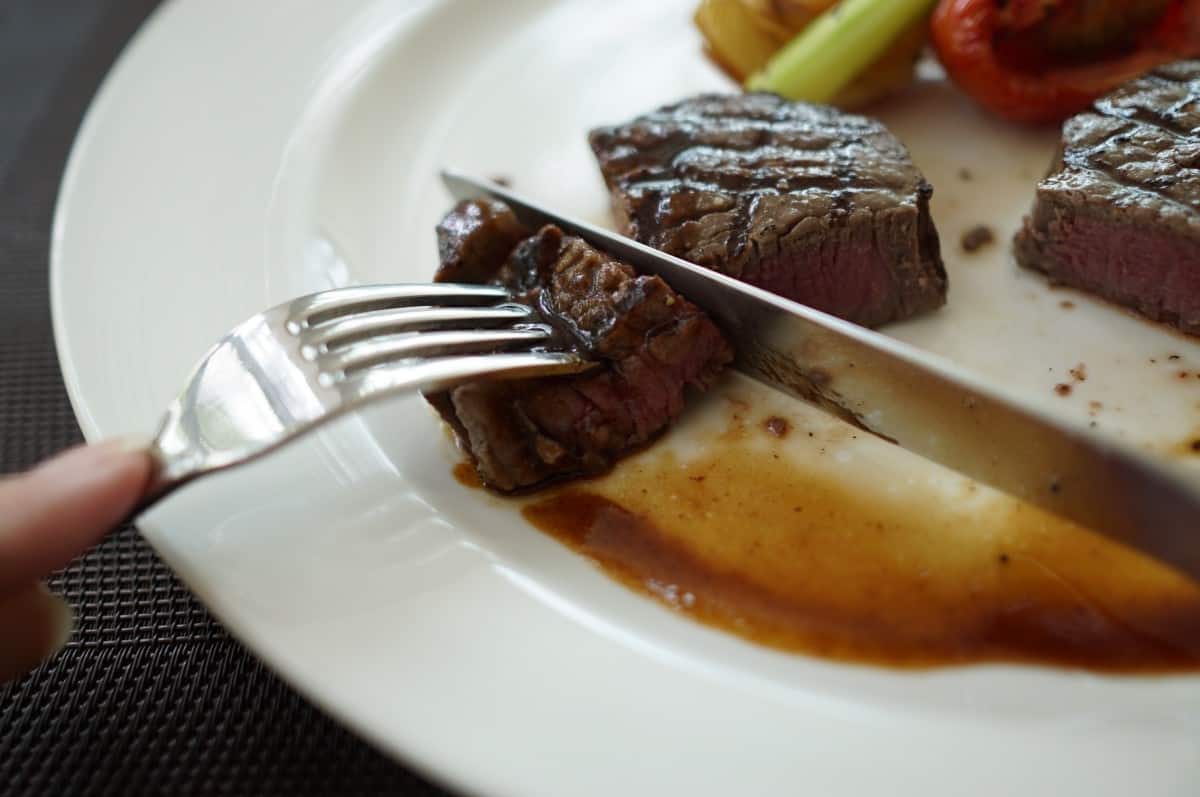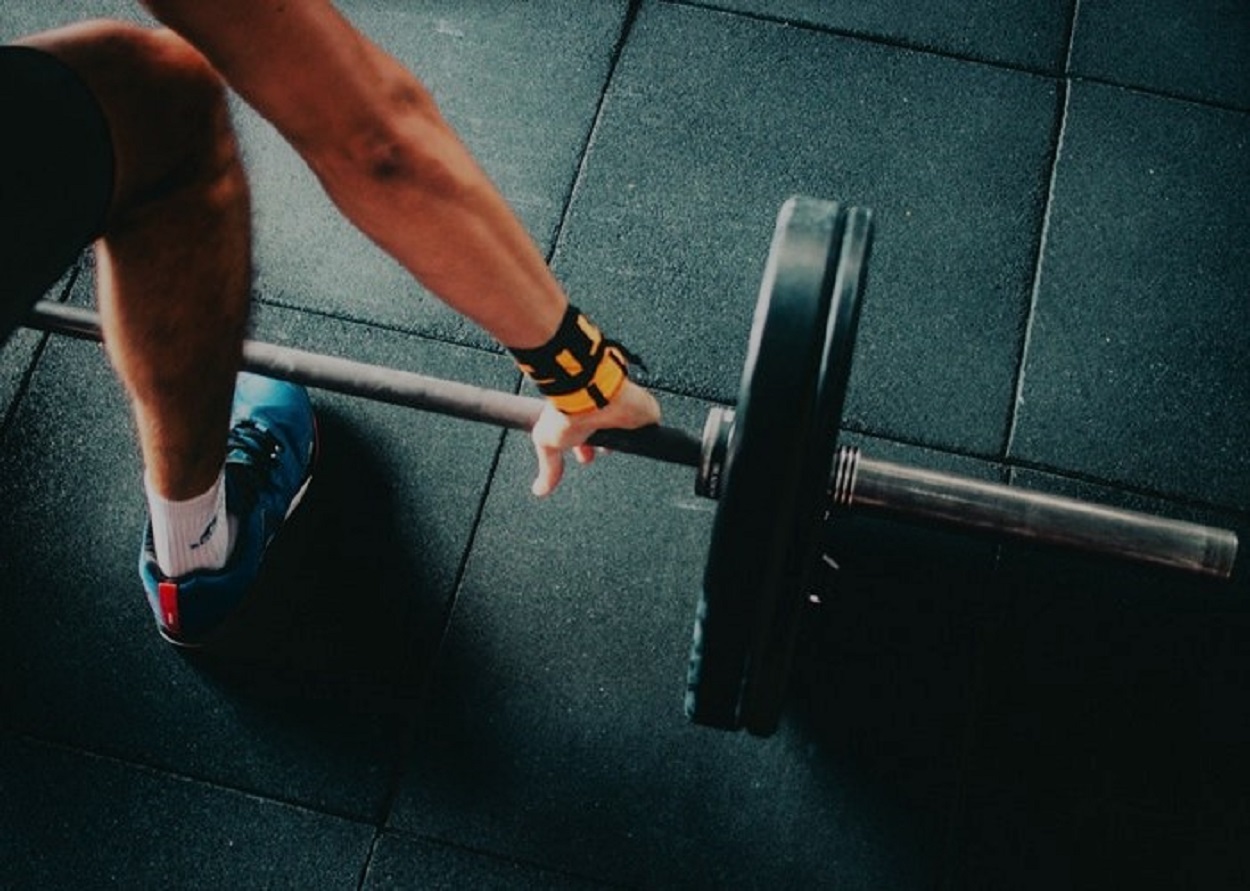The human body is really complicated. It relies on redundancies, fail-safes, and countless mechanisms to survive. Unlike, say, most man-made machines, which typically rely on a single input for power and are built to be efficient, the human body can make do and live off of nearly anything. We don’t need a single fuel source, and we adapt to whatever level we need to in order to perform. This versatility translates well into how we eat. As such, there’s also more than one way to build muscle.
However, if you want to build muscle efficiently, you need to recognize how the body works under ideal circumstances. This is where a lot of confusion comes from because we don’t really know what ideal circumstances look like. The field of nutrition, in particular, has been a scientific wild west for decades, with constant contradictions. Many of these are owed to the fact that the media often reports on preliminary findings as facts. This leads people to worry incessantly about refined sugars, eggs, butter, bacon, eating late, skipping breakfast, fasting too much, fasting too little, avoiding dairy, consuming more dairy, going full-hog on probiotics, avoiding FODMAPs, running away from soy – and so on and so forth.
Food myths are all around us, and they’re really distracting. Worse yet, some of them are good advice for very specific cases. Most experienced lifters tend to tell beginners to just ignore the contradictions, and live by a simple motto: eat more, lift more. But for the discerning lifter, such advice can be harmful. You should care about what you’re putting into your body, and when you’re putting it into your body. However, the answers you seek are most likely going to involve some trial and error.
Beginners Don’t Need to Worry as Much
A quick note for beginners – it’s going to be much easier for you to build muscle. You shouldn’t lose the forest for the trees, but don’t get too complacent either. Rather than just stuffing yourself, heed this advice:
- If you’ve got a high body fat, cut your calories and opt for protein supplementation. Don’t snack, stay away from fried foods, use less oil in your cooking, and eat a salad every now and again. No, fat isn’t evil, but it is 9 calories to a gram, so you’ll want enough of it to stay healthy, but not so much that you’re very easily whizzing past 3,000 calories a day. Whey and plant-based protein powders are your friends, as they’re low-calorie sources of good protein. As are lean sources of protein, from dry chicken breasts to slabs of tempeh. Read nutritional labels on everything you eat that isn’t a whole food and figure out if it fits in your daily limit.
- If you’re pretty lean and have trouble putting on muscle, understand that this isn’t something that happens overnight. You shouldn’t expect to gain a pound a week, and early gains will slow down over time. If you’re not gaining at all, add a protein shake in between meals. A spoon of peanut butter is an easy 100 calories, so add one or two spoonfuls to a shake to give yourself a little caloric boost. Eat when you’re hungry.
- If certain foods physically upset you, avoid them. This might mean beans, lactose, fermented foods, garlic/onions, soy, or eggs. Food allergies don’t need to kill you to be significant, and none of these foods are essential to a complete diet (although some, like eggs and soy, are really convenient).
You don’t even need a huge caloric surplus to gain muscle while you’re a beginner. It absolutely helps, but it’s inefficient because most powerlifters need to be both muscular and lean if they want to good relative strength (which is the whole point of weight classes), and binge eating early on in your training career is just going to force you to cut strength and muscle gains drastically when you have to go on a deficit later on. A lean bulk is boring because the numbers on the scale won’t change much, but it’s far better. More on that later.
Protein Is Important, But You Don’t Need a Ton
A gram per pound of body weight is a safe number, because it’s easy to remember, and it’s far more than most people would ever actually need to grow muscle. It’s easy to think that more protein = more muscle, but your body can only use so much protein. Yes, protein is incredibly important. It’s essential for building muscle. Muscle building relies on a regular process called muscle protein synthesis, which is paired with muscle protein breakdown. Training, eating and sleeping at regular intervals and at the right dosages keep a consistent and efficient breakdown and synthesis cycle.
Too little protein and your body won’t use it to build more muscle. Even less, and it’ll need to catabolize existing muscle for other purposes. Too much, however, and you’ll flush the excess down the toilet (literally). However, the real “magic number” is likely lower than a gram per pound. If you’re eating a normal, balanced diet, and are getting a good portion of your protein from animal sources, then aim for 1.6 grams of protein per kilogram of body weight, or about 0.7g of protein per pound of body weight.
This changes if you’re vegan. To understand why we must talk about the principle of bioavailability. Anything edible we consume gets broken down into resources for the body to use. Plants are typically less resource-efficient, especially in terms of protein. Less protein from plants ends up in your bloodstream than from animals.
Plant proteins also give the body fewer muscle-building signals because one of the major amino acids responsible for signaling muscle protein synthesis is rarer in plants (leucine) than in animal products. Furthermore, because the bioavailability of protein is lower in plants than in meat and eggs, you need more plant protein than animal protein. Vegan supplementation helps here – it’s more efficient to consume vegan protein powder than it is to eat plants for protein. You should be doing both, of course, but don’t be afraid to cover your needs with soy, pea, or other complete protein powders.
If you’re vegetarian, there’s always whey and eggs.
Don’t Exclude Food Groups and Nutrients
Full disclosure: I used to be vegan. I still eat way less meat than most people do, and sometimes I go a week or two without any animal protein. Growing up I felt that veganism was a moral imperative because it’s easier to see things as black and white when you’re younger. I still think veganism is an important but flawed cause (that’s a topic for a very different blog), but I implore vegans and anyone thinking of going vegan to understand that it isn’t an efficient or necessarily healthier lifestyle. Vegans tend to be leaner and healthier than the average person because they actually pay attention to what they’re eating, not because veganism is healthier than a smart omnivore diet.
Any diet that excludes food groups is dumb (unless you’ve got a valid moral or religious reason for the way you’re eating). Carnivore diet, paleo, low-carb, low-fat, keto – the benefits are dubious or shaky, and the drawbacks are fairly significant, insofar that you’re robbing yourself of a food choice that might be tasty, nutritionally valuable, or cheap, depending on where you live and what you like.
If you want to build muscle, ignore the people who say you’re going to build more muscle if you cut all sugars and carbs from your diet, or if you just eat meat and organs, or if you go completely vegan. You can still build muscle on all of these diets, but that’s like running a marathon after shooting yourself in the foot. You’re making it harder for no reason.
Don’t Bulk and Cut
I make it a point to bring this up several times every time I write about nutrition and powerlifting, and it’s really important to me. This does not apply if you’ve got the genetics and grit to be a super heavyweight lifter. Super heavyweights move the most weight because they’ve got the most muscle, and the way to build the most muscle is to train and eat and train and eat.
Yes, higher body fat also leads to lower testosterone (with the ideal for men hovering around 15%), but the world’s biggest fat-free mass index belongs to strength athletes with around or over 25% of body fat, so that’s obviously working for them.
If you’ve got the height and frame to weigh 400 pounds and lift a 2,200+ pound total, then, by all means, eat your way to the SHW classes. But if you’d rather not put that stress on your heart, or don’t have the frame for more than 110-120kg of bodyweight, then do not bulk. It’s a waste of your time, because you’ll either be competing with leaner guys weighing as much as you do with less blubber (i.e. less bodyweight that won’t be moving any iron), or you’ll be wasting time losing muscle and strength in a deleterious cut during your prep.
Eat at or around maintenance, measure your waist (aim for 1/5 of an inch of growth every few weeks), watch the scale, and stay at or around 15%/20% bodyfat (men and women, respectively).
It’s slow, it’s boring, and you probably won’t even notice you’re growing until someone who hasn’t seen you in months makes a positive comment, but that’s just how it is (unless you jump on some vitamin S).
Food Timing Matters Somewhat
Our body clock is extremely important, and a very underrated factor for growth and hormone regulation. Part of the reason why sleep is so critical for building strength and mass is that the body needs a consistent cycle of breakdown and growth to effectively make the physiological changes that we need to lift more weight. Irregularities slow and stall the process, and generally, cause you to lose time.
What does this mean in practice? It means you should lift, eat, and sleep according to your biological clock. If you work long nightshifts, you’re generally fucked (I’m sorry), but the handicap would still be relatively minor as long as you’ve managed to figure out a way to get in good uninterrupted sleep at the same hours every day.
That’s the most important bit: the same hours every day. If you care about muscle growth and strength, for the love of God put down your damn phone and get some solid sleep. Obviously, this doesn’t apply if you need to stare at a screen to make a living. Otherwise, try to make it a rule to avoid any blue lights and monitors for at least half an hour before you sleep and try to get 7-9 hours every night, especially if you’re a teen/in your early 20s.
Why does the light matter? Because our internal body clock relies on light to correct itself. The human circadian rhythm is almost 24 hours exactly, but it errs a little bit to one or the other side (a couple of minutes extra or less). In order to calibrate itself, this body clock relies on a system that translates external stimuli (light in particular) into the build-up and release of adenosine and melatonin, as well as other functions to get us sleepy. Light blocks adenosine and melatonin release, delaying sleepiness. Low light triggers melatonin (which is why it’s an important setting for any screen but shouldn’t be relied on over just turning them all off before you go to bed).
This is similar to how caffeine also functions – it hijacks the adenosine receptors of our cells and makes us feel “awake” by blocking the sleepiness and interferes with the release of melatonin. This is fine, as long as you’re not finding yourself struggling to fall asleep due to an afternoon coffee or relying on coffee to not be groggy in the morning (a sign that you’re not well-rested).
Now you might be thinking: “okay, this is interesting and all, but what does it have to do with how my diet should build muscle?” Simple: your natural circadian rhythm also affects digestion and protein synthesis. In other words, it gives us more insight into meal timing, or “chrononutrition”.
To put things together succinctly, a few interesting facts to keep in mind include:
- Your metabolism is naturally higher in the morning, as is your insulin sensitivity. This means you should carb load in the morning (not necessarily right when you wake up but before noon) and reduce the overall size and calories of your meals throughout the day. Big meals early in the day also boost energy expenditure.
- Your digestion slows down considerably once the sun sets, so try to eat smaller meals for dinner, and eat them long before you go to sleep. If you train later in the day, this doesn’t matter as much because your naturally declining insulin resistance throughout the day matters less if you train in the evening/late afternoon (your body metabolizes sugar better after training).
- Consistency is key in training and sleep, and it should be key in food, too. You don’t need to eat the same things, but you should try to eat at the same time every day (including on weekends).
- Protein synthesis is more efficient when you distribute your protein throughout your daily meals, rather than loading it into one big meal (i.e. an 80g protein dinner, 60g protein lunch, and a 30g protein breakfast). Take your daily protein intake and split it as evenly as you can between your meals (while keeping breakfast high calorie, and dinner low calorie).
- Fasting is still valuable but try to frontload your carbs and calories to minimize fat gain and insulin resistance. Consider eating from 10 am to 5 pm, for example. You can also use an 8-hour feeding window (9 am to 5 pm) if a 7 or 6-hour window is too small.
- Strongmen and endurance athletes probably shouldn’t adhere to these rules, as their goals require a ton of food (8,000-10,000 calorie diets) and thus more frequent meals spread more evenly throughout the entire waking day.
- Adherence is key. If you can’t implement all of these changes, at least consider one or two changes that are relatively simple. It’s better to half-ass some of these nutritional tips, rather than give up on them all.
In Conclusion
To build muscle, you must develop and maintain a consistent pattern of training, eating, and sleeping. The eating part is actually pretty simple, and the only things you need to track are your caloric intake and your protein. Try not to get fat, minimize cheap junk food (based solely on the potential long-term health effects of highly processed foods), and find a diet you can realistically stick to for years.
It’s not rocket science. You don’t need special BCAA intake between heavy sets, and a cabinet full of workout supplements. Stand in the sun during summer, maybe pop a few fish oil pills if you don’t eat much fish, and go to your doctor once or twice a year for a check-up and some blood work.
Want to lift heavier and avoid injuries? 💪🔥
Download our FREE '5-Minute Warm-Up Routine for Maximum Lifting Performance' and get primed for every workout!
Click below to grab your copy now!👇
👉 Download the Free Guide




